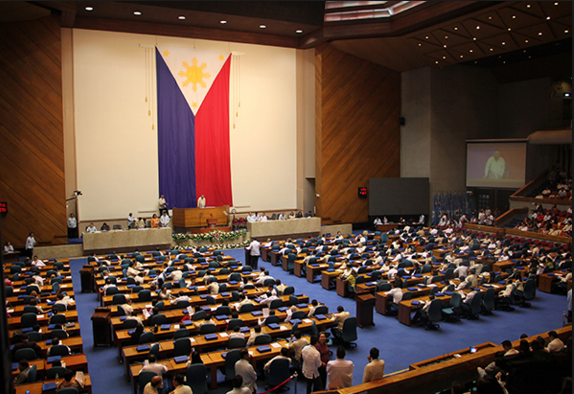MANILA, Philippines – The government targets to collect around P205 billion from a proposed new tax package that promises lower personal income taxes, but at the same time increase the price of fuel and other commodities.
To cushion the impact of the higher excise tax on fuel products, a social benefit card will be in place for the poorest families, who will receive at least P3,000 per year in benefits for every household in the next three years.
Quirino Rep. Dakila Cua, chairman of the House Committee on Ways and Means, said the Comprehensive Tax Reform Package (CTRP) Bill will be the “crown jewel of the economic reform agenda” of the Duterte administration when enacted into law and implemented.
Cua, with Albay Rep. Joey Salceda, one of the authors of the bill, led the presentation of the tax package in a caucus of the House majority bloc on Wednesday. Cua said the most contentious points raised during the meeting were the excise tax on fuel products and the lifting of the tax exemptions on cooperatives.
Executive Secretary Salvador Medialdea and House leaders led by Speaker Pantaleon Alvarez and Majoority Leader Rodolfo Fariñas also attended the caucus.
Fariñas said the House leadership targets to bring the proposed measure to plenary for debates next week and pass it on third and final reading on May 31 or during the sine die adjournment. It is targeted to be implemented starting 2018.
Salceda described the proposed CTRP as “the most radical in the history of the country since 1946, and is very well studied, very comprehensive, most finely-balanced tax measure ever since World War 2.”
“Kinukuha sa top 1 percent at binibigay sa lowest 50 percent at sa middle 40 percent. It’s egalitarian,” Salceda said.
[We get this from the top 1 percent and give it to the lowest 50 percent and the middle 40 percent of the population. It’s egalitarian.]
Salceda, a top economist, also said that the “collateral benefit” of the proposed tax measure could come in the form of credit ratings upgrade, which would result in lower interest rates and more fiscal space for expenditures such as social services and infrastructure.
The net revenue of P204.8 billion would come mainly from the excise tax on fuel products, which would result in a P3 per liter increase on the first year of implementation; another P2 per liter on the second year; and another P1 on the third year.
The excise tax on fuel is expected to generate a revenue of P75 billion in 2018; P120 billion in 2019; and, P150 billion in 2020. From this amounts, 40 percent would be allotted for the social benefit card, Cua said.
The beneficiaries could be the same as those receiving the current conditional cash transfer, Cua added.
The other sources of revenues from the proposed CTRP, aside from the excise tax, are the tax on sweetened products (P47 billion); increased excise tax on automobiles (P36 billion); and lifting of value added tax exemption on several items and services (around P90 billion).
The foregone revenues from the lower personal income tax is estimated at P140 billion, Cua said.




